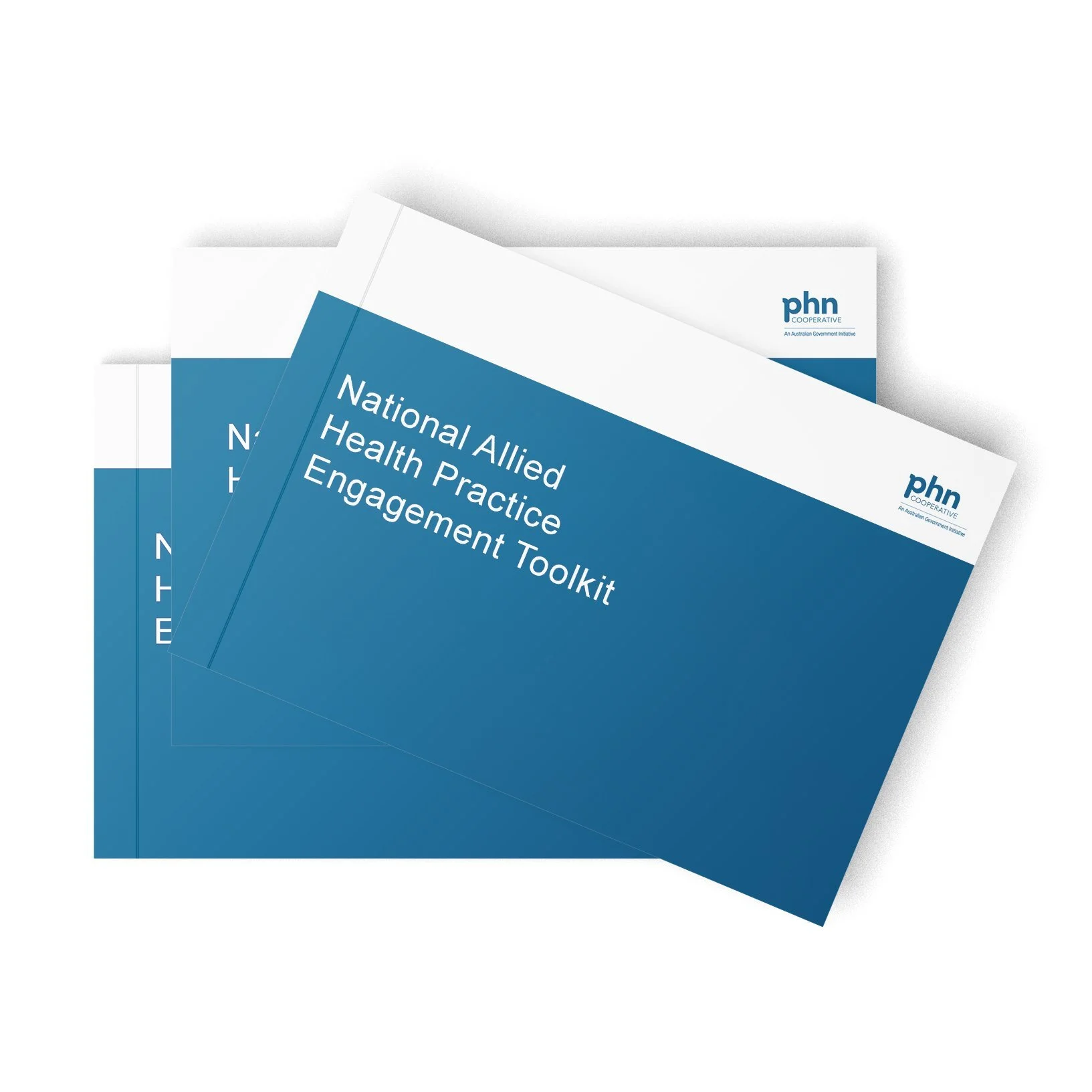Navigating primary care: New toolkit empowers allied health clinicians
The National Allied Health Practice Engagement Toolkit, a practical and accessible resource for allied health clinicians working in primary care, has been officially launched this month.
A PHN Cooperative initiative and led by the Hunter New England and Central Coast Primary Health Network (HNECC PHN), the toolkit supports busy clinicians, by providing streamlined and localisable content with links to essential information. It is a key component in supporting primary care allied health professionals across Australia to deliver more integrated, efficient, and patient-centred care.
The Toolkit offers guidance across several critical areas:
Understanding the local health system, including how to connect with PHNs and fellow clinicians
Education and networking, to enhance professional capability and improve service delivery
Clinical quality and governance, ensuring safer and higher-quality patient care
Business efficiency and funding, including insights into grants and other financial supports
Digital health integration, to improve connectivity and workflow across the system
Understanding of allied health roles, including education pathways and interprofessional collaboration.
HNECC PHN Chief Executive Office, Richard Nankervis said, “the Toolkit clarifies the complementary roles of PHNs and peak allied health bodies in supporting primary care clinicians.
“PHNs welcome continued collaboration with organisations such as Allied Health Professions Australia (AHPA), Indigenous Allied Health Australia (IAHA), and Services for Australian Rural and Remote Allied Health (SARRAH) to build a stronger, more integrated allied health workforce.”
The Toolkit builds on the foundations laid by the National PHN Allied Health in Primary Care Engagement Framework released in 2022, designed to strengthen collaboration between Primary Health Networks (PHNs) and the allied health sector.
Implementation and ongoing development of the Toolkit will be overseen by the National PHN Cooperative Allied Health Framework Implementation Group, which includes PHN representatives, the Department of Health and Aged Care Chief Allied Health Officer, and regular input from allied health peak bodies.
Co-chair for the National PHN Cooperative Allied Health Framework Implementation Group, Michelle Quinn, Western Sydney PHN, said “The Toolkit offers allied health the opportunity to learn more about patient safety, digital tools and funding and grant opportunities relevant for allied health.
“When localised, the Toolkit can help allied health to access local education and increase avenues to connect with other local health professionals.”
This initiative has been funded by the Department of Health and Aged Care.
